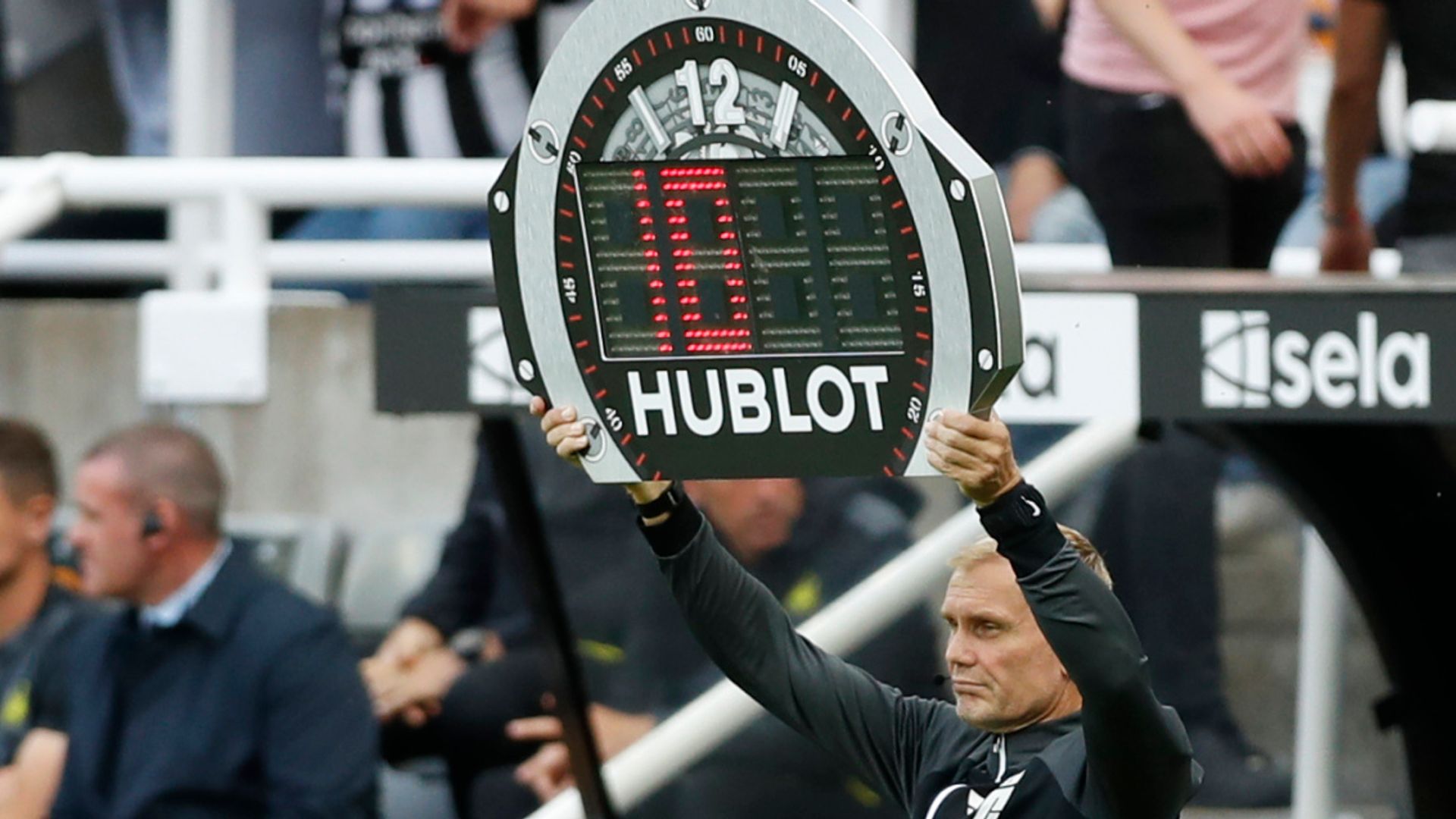
Everyone has a view on it.
Last season’s treble-winning manager Pep Guardiola has said it is treating his players as numbers.
The players themselves have complained that it would increase their workload and subsequently affect their mental health.
Some pundits agree with it, and some do not. The PFA chief has said that we are sleepwalking into a disaster.
So what is this new rule that is causing so much debate?
This season the Premier League and English Football League are committed to ensure a more accurate calculation of additional time, in line with the most recent IFAB [International Football Association Board] guidance.
This saw an increase in game time by four minutes and an increase in ball-in-play time by three minutes during World Cup 2022 as compared to the previous World Cup.
The rule changes look at increasing the amount of time the ball is in play by looking at the exact time lost when certain game events [goals and celebrations, substitutions, injuries, red cards, etc.] occur rather than a nominal amount of time [usually 30 seconds] added on.
It was felt there was a genuine need to do something to increase the tempo of the game. Last season saw the most average game [98.27] time but the least average ball-in-play time [54.52] of any Premier League season in the last 10 years.
Teams were spending at least a minute [on average] celebrating a goal last season, with Crystal Palace spending almost a minute and a half [85 seconds].
So far, Premier League games have only increased by an average of three minutes so far this season as compared to last season. This three-minute increase in playing time has resulted in a subsequent four-minute increase in average ball-in-play time.
In the EFL the average game time and average ball-in-play time has increased by more as compared to last season.
This should be taken in context as the average ball-in-play time [last season] reduces as we go down the divisions and thus an eight-minute increase in average ball-in-play time in League Two still makes it the division with the least average ball-in-play time.
What would be music to the ears of managers is that the average game time has reduced during every subsequent round of EFL fixtures so far this season. The average ball-in-play reduced [on average] during the first two match-days but then picked up again during the third.
This seems to suggest that players are getting to grip with the new laws relating to time-wasting.
However, only time will tell whether these new regulations are here to say or if they will slowly fade away as the season progresses.

